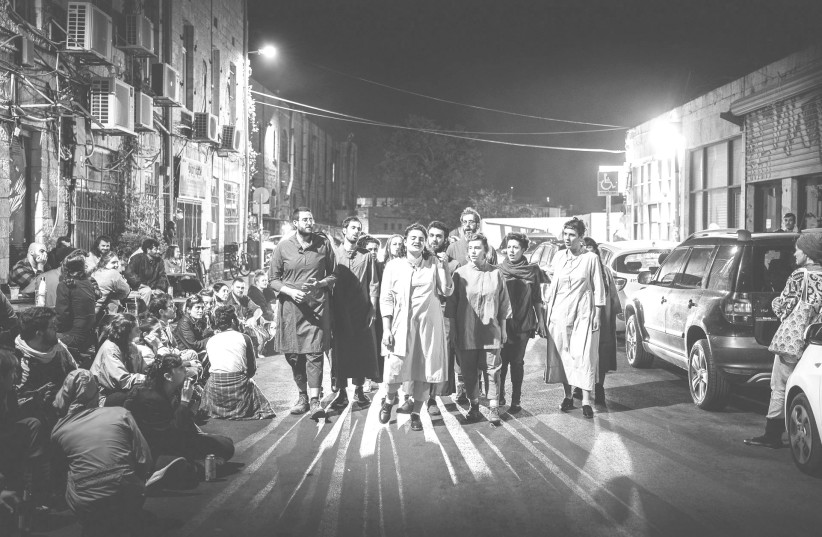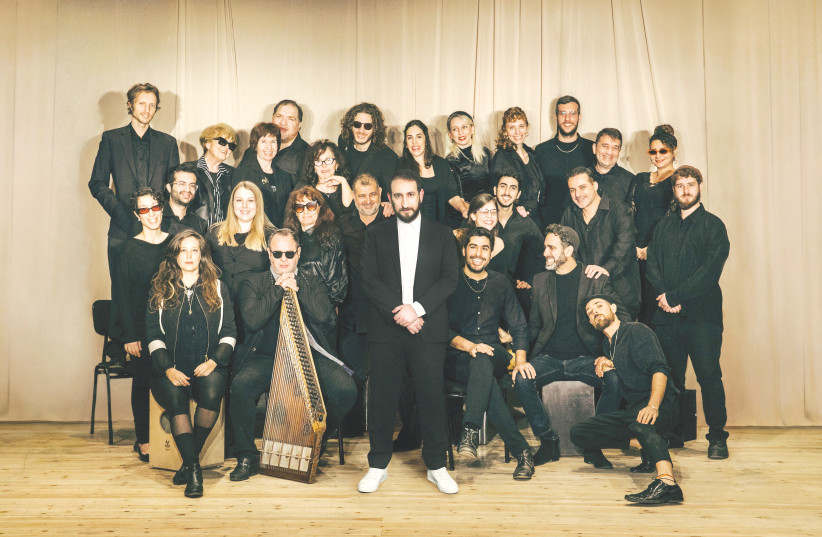Israeli music, like any artistic or societal feature of this country, is a manifold thing. As a multicultural society, the sonic creations produced here necessarily reflect that motley mosaic of sounds, smells and colors. And that includes classical music.
For the past quarter of a century, the Israel Music Festival has spearheaded that line of thought and has endeavored to keep the public abreast of the ongoing evolutionary process. The forthcoming edition of the festival, which is supported by the Ministry of Culture, casts a suitably generous net across the range of styles employed by Israeli composers of all ages.
Incoming artistic director Yuval Zorn embraces the here-and-now ethos which, surely, is a prerequisite of any fundamentally contemporary venture. The program for the 25th edition of the festival, which takes place across five days (September 28-October 3) in five cities – Jerusalem, Beersheba, Tel Aviv, Zichron Yaakov and Haifa – incorporates plenty of present-day vibes and intent, alongside salutes to some of the giants of the yesteryear community, without whom the current crop would not be where they are today.
The likes of Israeli classical music pioneers, such Yehezkel Braun, and now 95-year-old hale and hearty Zvi Avni, have works in the festival mix, as do leading members of the intermediary generation – including 64-year-old Chaya Czernowin and 52-year-old Samir Odeh-Tamimi – and the twentysomething crowd of Carmel Koriel and Batya Frenklakh.
It looks like the debutant artistic director has done his utmost to offer us as broad a view as possible of where the Israeli contemporary art music scene is currently at. “That is the general idea,” says Zorn. “The music mirrors the era in which we live and work. Actually, one should say mirrors the eras. The periods of time really overlap.”

The 46-year-old pianist and conductor was clearly intent on setting out his own directorial stall from the off, and the almost dizzying array of musical endeavors featured in the program reflects a dogma-free approach, as well as an inclusive take on the dynamics of the Israeli music field.
While Braun and Avni are celebrated stalwarts of this still-young country’s musical DNA who, as composers, fused their German roots through the multitude of very different sounds and rhythms they encountered in this part of the world, Zorn would also like us to open our ears, minds and hearts to the sensibilities that continue to emerge here as members of the second and third generations of olim rediscover and begin to dig into their own cultural baggage.
“There is another young artist who, although she is not a composer, is very prominent. There is Neta Elkayam,” he says referencing the 41-year-old vocalist and, in fact, multidisciplinary artist who has made quite a splash in recent years, partly alongside electronic music envelope-pushing husband Amit Hai Cohen. “She comes from a completely different field but that is also a product of our times.”
What to expect
THE FESTIVAL slot in question is scheduled for September 29, 8:30 p.m., at the Tamuz Center in Beersheba. Elkayam, who is of Moroccan descent, will front the Jerusalem Orchestra East and West (JTO) and guest conductor Matan Yona in a voyage into the sumptuous fabric of Jewish Moroccan song. The Roots concert, overseen by orchestra founder, chief conductor and musical director Tom Cohen, takes in a fascinating repertoire straight from North Africa. The playlist includes works by Moroccan-born oud player-singer Saliman Almagribi, compatriot singer-songwriter Albert Suissa, oud player Elyahu Avichazar, and Cohen himself, with Elkayam and Hai Cohen also contributing a chart to the Beersheba proceedings.
Over in Jerusalem, on the opening day of the festival, things get a little wilder and woollier at Hamiffal when the Jerusalem Street Orchestra, under the direction of founder, conductor and pianist Ido Shpitalnik, wade into its Hard Rock Shock show with, typically, all instrumental guns blazing. This time around Maayan Franco will be on the conductor’s podium as the street-level chamber ensemble performs a multigenerational slew of works by Jerusalemite composers, including Soviet-born Mark Kopytman who died in 2011, 30-year-old cellist-composer Shahar Regev, Udi Perlman, 68-year-old Ari Ben-Shabetai and jazz-leaning Erez Aviram. It is a mix for the age, the current finger-on-the-pulse energies and consciousness.
Later on in the capital opener, the Jerusalem Symphony Orchestra will take its home stage at the Jerusalem Theatre to perform a wide-ranging repertoire of scores by Czernowin and Odeh-Tamimi, Braun and 68-year-old Yinam Leef.

The Tel Aviv rollout also had plenty going for it in eclectic terms. The program kicks off at the Tel Aviv Museum at 11:30 a.m., with soprano Yeela Avital and the Atar piano trio, with some fresh arrangements of Israeli children’s songs dating back to the 1950s. The organizers say the show is suitable for kids from the age of five.
“I take the viewpoint of a performing musician. I connect with the moment in music very powerfully. I would like the communication process with the audience to be direct and personal.”
Yuval Zorn
Things get far more adult-oriented by 1 p.m. when the Israel Contemporary Players play the Images and Passions concert, with adventurous conductor Ilan Volkov wielding his baton, with a program that takes in former festival honcho Boaz Ben Moshe’s Passion-Compassion, Winter Lung by Ofir Klemperer, Tripp by Amos Elkana and 45-year-old Ziv Cojocaru’s Do You Like Bill?
Intriguingly, Zorn is the first to hold the festival artistic director position – incumbents serve four-year terms each – to come exclusively from the performance side of the musical tracks. He observes, with absolutely no disrespect for his predecessors, that gives him something of a different perspective on the programming job. Ideally, he would like us to go with each day’s festival flow.
“I am, for example, very aware of the program progression. I would like to present the characters [from the music world]. And I like there to be constant movement between the events themselves, throughout the day. I like to think of myself as a spectator who comes along for the whole day. I want the day as a unit to work well for me.”
Naturally, Zorn can only hope that some of us will devote an entire day to the Israel Music Festival concerts in our locale. “I take the viewpoint of a performing musician. I connect with the moment in music very powerfully. I would like the communication process with the audience to be direct and personal.”
Whether this year’s festival pans out that way will only transpire later this month. But, one thing is for sure, there is something for practically everyone in the offing right across the country.
For tickets and more information, visit: www.israelmusicfest.co.il
